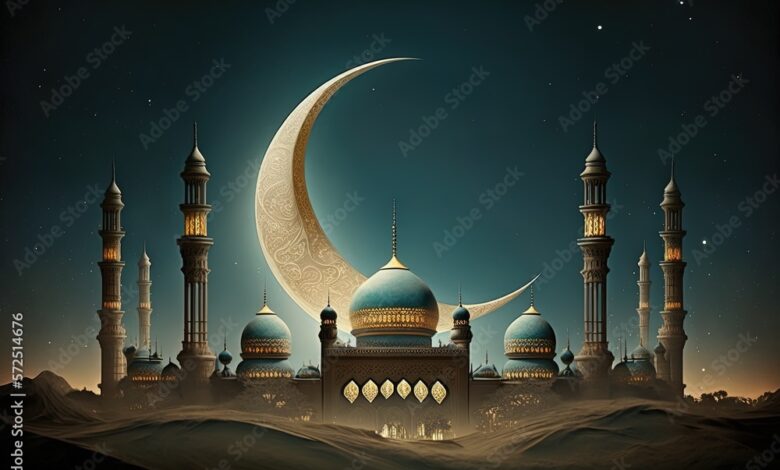Muslim Holidays: A Comprehensive Guide to Their Significance and Traditions

Muslim Holidays: A Comprehensive Guide to Their Significance and Traditions

Introduction
What Are Muslim Holidays?
Muslim holidays hold immense spiritual, cultural, and social importance within the Islamic faith. Rooted in the teachings of the Quran and the traditions of Prophet Muhammad (peace be upon him), these holidays serve as opportunities for reflection, gratitude, and community bonding. Muslim Holidays
The two primary Islamic holidays are Eid al-Fitr and Eid al-Adha, each tied to key religious practices. Additionally, days like Ramadan, Mawlid al-Nabi, and Ashura hold unique significance across Islamic sects and communities. Muslim Holidays
Importance of Muslim Holidays in Islamic Culture
Islamic holidays are more than just festive occasions—they encapsulate the essence of faith. They foster unity, encourage acts of charity, and provide a moment for Muslims to reconnect with their Creator. For instance, the emphasis on family gatherings, prayers, and acts of kindness during these holidays underscores the values of compassion and solidarity. Muslim Holidays
Eid al-Fitr

Historical Background
Eid al-Fitr marks the end of Ramadan, Muslim Holidays the Islamic holy month of fasting. Its origins trace back to Prophet Muhammad’s time in Medina, where he established it as a day of celebration and gratitude. Muslims express their thankfulness to Allah for providing them with strength during the month-long fast. Muslim Holidays
Traditions and Celebrations
The day begins with a special prayer called Salat al-Eid, followed by communal gatherings. Families come together to share meals, exchange gifts, and offer Zakat al-Fitr, a form of charity ensuring everyone can partake in the celebrations. Muslim Holidays
Global Variations
While the core religious aspects remain consistent, cultural expressions of Eid al-Fitr differ globally. In Indonesia, Muslims celebrate with the feast of ketupat, while in the Middle East, the day is marked by large-scale public festivities. South Asian countries emphasize traditional attire, sweets, Muslim Holidays

Eid al-Adha
Significance in Islam
Eid al-Adha, known as the Festival of Sacrifice, honors the willingness of Prophet Ibrahim (Abraham) to sacrifice his son as an act of obedience to Allah. It coincides with the annual Hajj pilgrimage, symbolizing devotion and submission to God’s will. Muslim Holidays
The Rituals of Qurbani
A key feature of Eid al-Adha is the Qurbani, or ritual slaughter of an animal, typically a goat, cow, or sheep. The meat is divided into three parts: one for the family, one for relatives, and one for the needy. Muslim Holidays
Eid al-Adha Around the World
In Turkey, the festival is called Kurban Bayramı, and it’s customary to visit cemeteries and honor ancestors. African countries, such as Nigeria, host elaborate feasts, while in Western countries, Muslims hold smaller, community-oriented events. Muslim Holidays
Ramadan: The Sacred Month
Spiritual Importance of Ramadan
Ramadan is not a holiday but a month of intense worship, self-discipline, and spiritual growth. Muslims fast from dawn to sunset, refraining from food, drink, and immoral acts, to purify their souls and develop empathy for the less fortunate. Muslim Holidays
Practices and Fasting
The fast is broken with an iftar meal, traditionally started with dates and water, as was the practice of Prophet Muhammad. Pre-dawn meals, or suhoor, sustain individuals throughout the day. Daily prayers, taraweeh, and Quran recitation are key components of Ramadan worship. Muslim Holidays
Ramadan’s Connection to Eid
The end of Ramadan brings Eid al-Fitr, symbolizing the joy of spiritual accomplishments. The celebrations reflect gratitude to Allah and reinforce communal bonds established during the month. Muslim Holidays
Islamic New Year
Overview of Hijri Calendar
The Islamic New Year, or Hijri New Year, marks the beginning of the Islamic lunar calendar. It commemorates Prophet Muhammad’s migration, or Hijrah, from Mecca to Medina, a pivotal moment in Islamic history. Muslim Holidays
The Meaning of Muharram
The first month of the Islamic calendar, Muharram, is sacred. For Shia Muslims, it is a time of mourning the martyrdom of Imam Hussein, the grandson of Prophet Muhammad, at the Battle of Karbala.
How Muslims Celebrate the New Year
Celebrations vary widely. In Sunni traditions, it’s a quieter time for prayer and reflection, while Shia communities observe processions and rituals to honor Imam Hussein.
Mawlid al-Nabi
History of the Prophet’s Birthday
Mawlid al-Nabi, the celebration of Prophet Muhammad’s birth, dates back to the early Islamic period. Over time, it evolved into a festive occasion marked by storytelling, sermons, and feasts. Muslim Holidays
Customs and Observances
Muslims recite poetry in praise of the Prophet, distribute food to the poor, and hold processions. Some communities even illuminate their homes and mosques to reflect the joy of the occasion.
Regional Differences
While widely celebrated in South Asia and North Africa, Mawlid is not observed in some conservative regions, where it’s viewed as an innovation in Islamic practice.
Laylat al-Qadr
The Night of Power
Falling in the last ten days of Ramadan, Laylat al-Qadr is the night when the Quran was first revealed to Prophet Muhammad. Its exact date is uncertain, adding to its spiritual significance.
Significance in the Quran
The Quran describes Laylat al-Qadr as better than a thousand months, emphasizing the immense reward for worship on this night.
How Muslims Observe It
Muslims spend the night in prayer, Quran recitation, and supplication. Mosques are often filled with worshippers seeking Allah’s mercy and forgiveness.
Conclusion
- What are the two main Muslim holidays?
- The two primary Muslim holidays are Eid al-Fitr and Eid al-Adha.
- Why is Ramadan important?
- Ramadan is a sacred month of fasting, self-discipline, and spiritual reflection, preparing Muslims for the joy of Eid al-Fitr.
- How is Eid al-Adha celebrated?
- Eid al-Adha is celebrated through the Qurbani sacrifice, communal prayers, and feasts.
- What is the Islamic calendar based on?
- The Islamic calendar is lunar, consisting of 12 months of 29–30 days each.
- What is Laylat al-Qadr?
- Laylat al-Qadr is the Night of Power during Ramadan when the Quran was revealed.
- Is Mawlid al-Nabi universally celebrated?
- No, Mawlid is celebrated in many regions but not observed in some conservative communities.